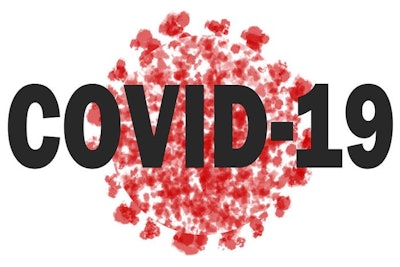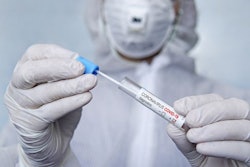
The COVID-19 pandemic raging around the globe is part of a wider trend of human diseases arising from animals, according to a representative of the World Organisation for Animal Health (OIE).
As part of an online conference hosted by the International Poultry Council, Dr. Matthew Stone, deputy director general, international standards and science at the OIE, spoke about the current activities of the OIE during the COVID-19 pandemic and opportunities for future OIE work programs.
Rapid emergence of zoonotic disease
The OIE is an organization focused on controlling epizootic diseases and preventing their spread. Stone said the arrival of COVID-19 at the end of the year is part of a decades-long trend of diseases spreading from animal to animal and then to humans that's been accelerated by globalization and climate change.
COVID-19 was first identified in Wuhan, China, and is believed to have a zoonotic origin. Stone said its likely the disease was spread in a wet market environment. These so-called wet markets feature a wide variety of live animals – both wild and domesticated – which are sometimes slaughtered onsite. This environment brings together species and populations that would otherwise not interact and creates an opportunity for disease to spread from animal to animal and to humans, too.
Wet markets are only one component of how zoonotic diseases like COVID-19 are spread, however. Stone pointed to numerous factors accelerating the spread of epizootic disease: population growth, climate change, bioterrorism, deforestation, antibiotic resistance, mass livestock production, global air travel, urbanization, wildlife disruption and mass gatherings. He said deforestation and land-use change, illegal and poorly regulated wildlife trade, intensified agriculture and livestock production, antimicrobial resistance and climate change are all accelerating the spread of disease from animals to humans.
How the OIE is responding to COVID-19
The OIE, like many other organizations rocked by the pandemic, is focusing on doing its job during a challenging time.
Stone said the OIE is working in a support role to the World Health Organisation (WHO) which is leading the way on emergency response and crisis management. As the WHO stepped up its responsibilities and communication surrounding human health, the OIE has done the same for animal health.
The OIE is also putting more resources toward monitoring disease among wildlife and is increasing its focus on wet markets. It is also monitoring the spread of diseases of zoonotic origin from humans back to animals. Like the WHO, it emphasizes diagnostic testing to control the spread of disease. The OIE is also doing what it can to amplify the spread of critical veterinary information and accelerate the publication and application of new research relevant to the current pandemic and fighting future disease.
Expected negative impacts from COVID-19
Again, like the rest of the world, COVID-19 is negatively affecting the OIE’s activities as well as global veterinary health missions. He identified these specific areas of concern.
- Animal health program interruptions: Both animal population surveillance activities and vaccination programs are likely to be interrupted by the pandemic and its associated challenges.
- National economy fragility: As countries become further indebted, more people are unemployed and businesses fail, resources to support veterinary health may be unavailable.
- Food insecurity and trade: Although the food sector is recognized as essential and will continue to function amid the pandemic, the impacts on national and international food supply chains is far reaching and will express itself in both expected and unforeseen ways.
- Globalization and market access: The chaos of the pandemic is likely to further weaken international cooperation, threaten funding sources and destabilize multi-lateral global institutions.
Nevertheless, Stone said, the OIE is very active during this time and it will not lose sight of its mission, nor the importance of it during the COVID-19 pandemic. It will continue to help its members build animal health and disease resilience and it will plan for the forthcoming recovery from the COVID-19 pandemic and the ongoing response it will need to give.
View our continuing coverage of the coronavirus/COVID-19 pandemic.


















